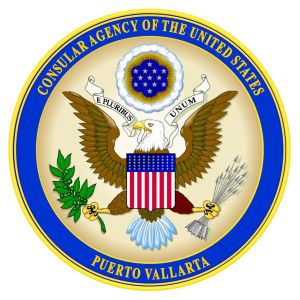Puerto Vallarta, Mexico - Earlier this summer many US and Canadian travelers were up-in-arms over the news that many airlines were banning pets in-cabin on flights to/from Mexico. The "no pets in cabin" policy was reportedly due to a Mexican government regulation (DGAC article CO VA-07.8_07) that was put into law in 2007, but never before enforced.
Due to the public outcry, on June 21, 2012, Lic. José Armando Garcia Nuño of SECTUR (Secretaria de Turismo) met with Mexico's aeronautic authority (Dirección General de Aeronáutica Civil) and reported that changes were being made to the regulation.
Subsequently, the DGAC issued Circular CO AV-07.8/07, a temporary measure stating that pets and service animals WOULD be allowed in cabin on international flights - effective immediately - and would remain in place until the new regulations were put into effect in the Fall.
Yesterday, the US Consular Agency of Puerto Vallarta released the following notice, which is intended to educate the public on the new regulations regarding the importation of pets to Mexico via airplane:
The General Direction of Agriculture (SAGARPA) has regulated the importation all domestic pets (cats and dogs) into Mexico. This Mexican institution has required Mexican Customs to collect a 'clean bill of health' for every pet upon entering the country.
To comply with this requirement one of the following may be submitted:
1. A recent (within 30 days) certificate of good health issued by a registered US veterinarian (DVM). This letter must be in the veterinarian’s office letterhead with his or her address, phone number, National Accreditation number, and License Number and State of practice. The body of the letter must certified that he or she has inspected the animal and that it appears to be in good health and free of any contagious diseases. The letter should also contain the following information: name of pet, species, breed, age, sex, color and size. It must also mention last date of parasite treatment, viral and rabies vaccinations.
2. US APHIS Form 7001, which may be obtained online, (Click HERE to download,) or at the nearest APHIS office. (To find the APHIS office closest to you, visit aphis.usda.gov.) This form must be completely filled out with your address in the US, the address the pet is going to in Mexico, a certification by a registered veterinarian and an official seal by a USDA Veterinary Services Office. Please note that APHIS 7001 forms without the USDA/APHIS/VS seal and veterinarian certification WILL NOT be accepted anymore. The form is only valid within 30 days of being sealed.
Please note that failure to present any of these documents will result in the pet being held up in customs until a registered veterinarian can be called. In addition to paying the Veterinarian’s fee for an airport inspection, a wait of several hours can be expected, especially during weekends and holidays.
When returning home with your pet, the following documents must be presented to the Customs officials in your own country:
A recent (within 30 days) certificate of good health issued by a registered Mexican veterinarian (MVZ). This letter must be in the veterinarian’s office letterhead and mention his or her address and phone number as well as his "Cedula Profesional" number. The body of the letter must certify that he or she has inspected the animal and that it appears to be in good health and free of any contagious diseases. The letter should also contain the following information: name of pet, species, breed, age, sex, color and size. It must also mention last date of parasite treatment, viral and rabies vaccinations. For a list of veterinarians in Puerto Vallarta, visit seccionamarilla.com.mx.
Related Articles:New 'No Pets in Cabin' Policy Could Change Mexico Travel
Setting the 'No-Pets-in-Cabin' Record Straight



